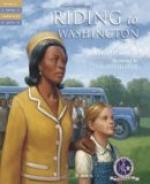“O grave! where is thy victory?
O death! where is thy sting?”
My mind was full of Job’s story all that day. I somehow refused to believe that what he had related was mere imagination, and it was evident that he could not have invented the story of the inner voice, for this remained a mystery to him. The inner voice haunted me all the time, and, as I lay in bed that night, I asked myself again and again the question: Why must we wait for a future life to hear this inner voice?
B.A.
They met at the smithy, waiting for “The Crooked Billet” to open for the evening. There was Joe Stackhouse the besom-maker, familiarly known as Besom-Joe, William Throup the postman, Tommy Thwaite the “Colonel,” so called for his willingness to place his advice at the service of any of the Allied Commanders-in-Chief, and Owd Jerry the smith, who knew how to keep silent, but whose opinion, when given, fell with the weight of his hammer on the anvil. He refuted his opponents by asking them questions, after the manner of Socrates. The subject of conversation was the village school-mistress, who had recently been placed in charge of some thirty children, and was winning golden opinions on all sides.
“Shoo’s a gooid ’un, is schooil-missus, for all shoo’s nobbut fower foot eleven,” began Stackhouse; “knows how to keep t’ barns i’ their places wi’out gettin’ crabby or usin’ ower mich stick.”
“Aye, and shoo’s gotten a vast o’ book-larnin’ intul her heead,” said Throup. “I reckon shoo’s a marrow for t’ parson, ony day.”
“Nay, shoo’ll noan best t’ parson,” objected Stackhouse who, as “church-warner” for the year, looked upon himself as the defender of the faith, the clergy, and all their works. “Parson’s written books abaat t’ owd churches i’ t’ district, who’s bin wedded in ’em, and who’s liggin’ i’ t’ vaults.”
“Well,” rejoined the Colonel, “and didn’t Mary Crabtree, wheer shoo lodges, insense us that t’ schooil-missus had gotten well-nigh a dozen books in her kist, and read ’em ivery eemin?”
“Aye, but shoo’s noan written ’em same as t’ parson has,” retorted Stackhouse.
“I reckon it’s just as hard to read a book thro’ cover to cover as to write one,” retorted the Colonel.
“An’ shoo can write too,” the postman joined in, “better nor t’ parson. I’ve seen her letters, them shoo writes and them shoo gets sent her. An’ there’s a queer thing abaat some o’ t’ letters at fowks writes to her; they put B.A. at after her name.”
“Happen them’ll be her Christian names,” suggested Stackhouse. “There’s a mak o’ fowks nowadays that gets more nor one name when they’re kessened.”
“Nay,” replied Throup, “her name’s Mary, and what fowks puts on t’ envelope is Miss Mary Taylor, B.A.”
“Thou’s sure it’s ‘B.A.,’ and not ‘A.B.,’” said Stackhouse. “I’ve a nevvy on one o’ them big ships, and they tell me he’s registered ‘A.B.,’ meaning able-bodied, so as t’ Admirals can tell he hasn’t lossen a limb.”




